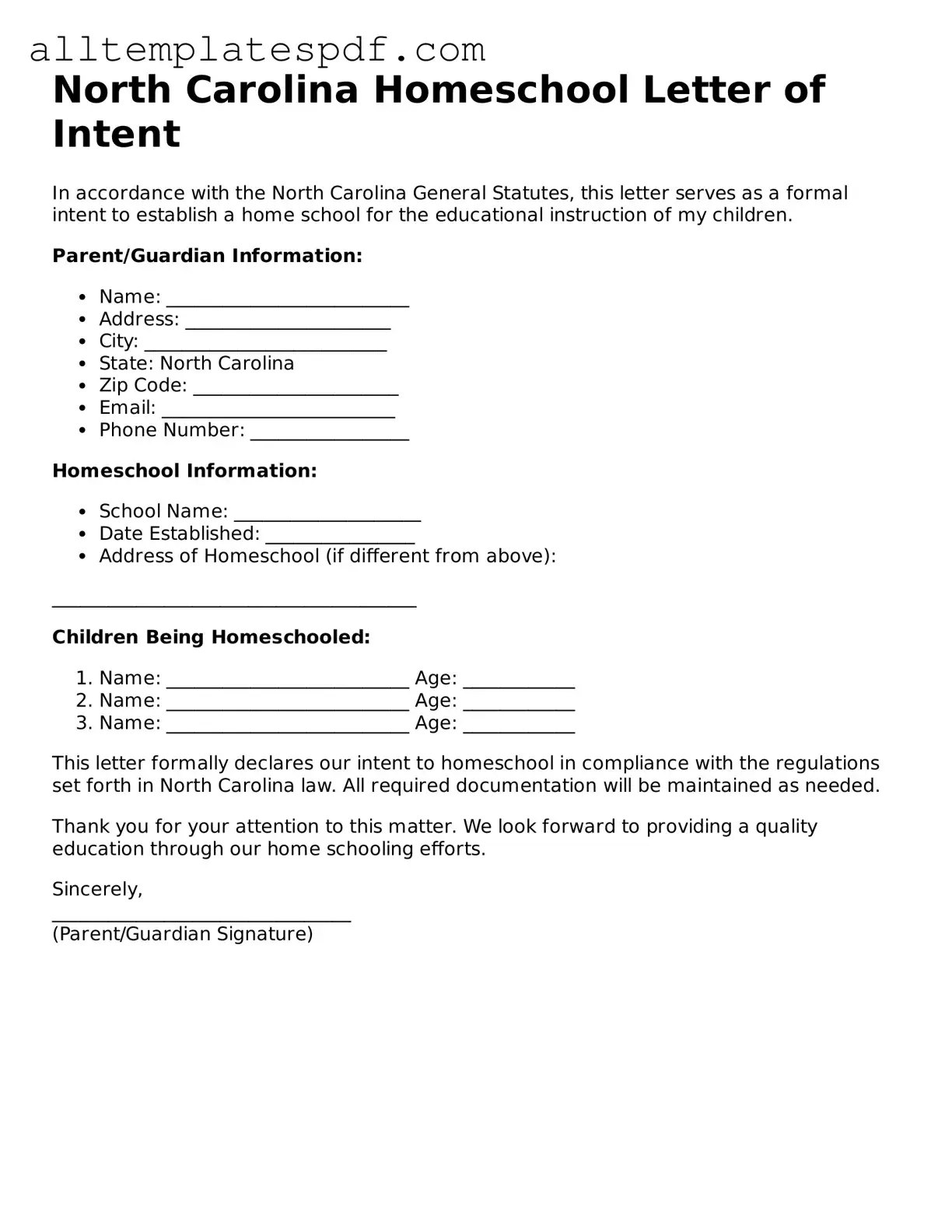Blank Homeschool Letter of Intent Template for the State of North Carolina
The North Carolina Homeschool Letter of Intent is a formal document that parents must submit to establish a homeschool program for their children. This form notifies the state of the intent to educate a child at home, ensuring compliance with state regulations. Understanding how to properly complete and submit this form is essential for parents embarking on the homeschooling journey.
For assistance in filling out the form, click the button below.
Open Editor

Blank Homeschool Letter of Intent Template for the State of North Carolina
Open Editor
Fast and easy form completion
Complete Homeschool Letter of Intent digitally — fast and easy.
Open Editor
or
↓ Homeschool Letter of Intent PDF Form
